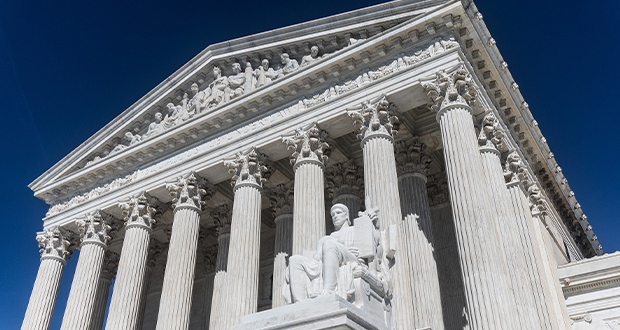
DEPOSIT PHOTOS
It was a bad term for the administrative state.
In Corner Post, Inc. v. Board of Governors of the Federal Reserve System, the U.S. Supreme Court upended settled lower court precedent and expanded the rights of people to challenge unlawful agency rules. Securities and Exchange Commission v. Jarkesy neutered the agencies’ ability to extract civil penalties by giving defendants the right to a jury trial.
Then there was Loper Bright Enterprises v. Raimondo (consolidated with Relentless, Inc. v. Department of Commerce), overturning the 40-year reign of Chevron deference. Chevron U.S.A., Inc. v. Natural Resources Defense Council, Inc. had required courts to defer to an administrative agency’s interpretation of an ambiguous statute that it administers.
But no longer. In a 6-to-3 opinion by Chief Justice John Roberts, “Chevron is overruled.” The court reviewed the case law leading up to the enactment of the Administrative Procedure Act. Then, the court found that the act simply adopted the preexisting rule, “that courts decide questions of law by applying their own judgment.” The majority eschewed a constitutional holding, instead determining that Chevron’s deference to agency interpretations could not be squared with the act.
Overruling Chevron poses some problems of instability. That point was not lost on Justice Elena Kagan, who penned the dissent. “Who,” she asked, “should give content to a statute when Congress’s instructions have run out?” With Chevron overruled, the answer is now clear: the judiciary. But now the question is how will courts give meaning to statutes when the text runs out?
One response will naturally be the traditional tools of statutory interpretation: analysis of language and syntax and the canons of construction. But we live in a world where Congress makes broad grants of rulemaking authority, and I wonder whether the traditional tools are up to the task.
Consider an example that touches on most Americans: the Occupational Safety and Health Act. In that act, Congress gave the Occupational Safety and Health Administration the power to enact any standard “reasonably necessary or appropriate to provide safe or healthful employment and places of employment.”
With Chevron, virtually any rule will satisfy this standard. The standard is purposefully ambiguous, and it’s hard for a court to say that any particular rule is beyond its bounds.
Yet, without any kind of deference, this standard is a tough nut for a judge to crack. What factors go into making a safety rule “reasonably necessary or appropriate”? Judges will rack their brains trying to interpret the phrase. There are probably some easy, outlier cases that fall outside the scope of this rulemaking authority and many that will fit comfortably within its ambit. But there is no great way to judge the edge cases.
This problem exists by design. Congress intentionally delegated rulemaking authority without a meaningful standard.
That is not something Congress is supposed to do. There is a body of law — not perfectly well developed — to prevent this kind of law, which is called the nondelegation doctrine. The doctrine has fallen on a century of hard times, despite recent efforts at resuscitation. But Chevron’s demise could bring the doctrine back into focus.
The OSHA example isn’t just hypothetical but was the subject of a recent certiorari petition at the court. The court ultimately denied the petition, over the noted dissent of Justices Clarence Thomas and Neil Gorsuch. The chief justice joined an earlier dissenting opinion by Gorsuch that would have revived the nondelegation doctrine. It’s likely that Justices Samuel Alito and Brett Kavanaugh have similar feelings.
Despite the denial of this petition, Roberts’ Loper Bright opinion seemed to have its eye on the nondelegation doctrine. Roberts sought to temper the impact of Chevron’s overruling by emphasizing that Congress can expressly delegate to an agency the discretion to interpret statutory terms or fill in a statute’s gaps. But, he repeatedly emphasized, that grant of discretion is subject to “constitutional limits.” The doctrine providing those constitutional limits is the nondelegation doctrine.
Where courts will go after Loper Bright is hard to say. But I offer this modest prediction: Courts will grapple with the statutory text to understand what it means and whether Congress has truly delegated discretion to an agency. That will lead to exasperation with the intentional seeds of ambiguity that Congress has planted in the United States Code. That will, in turn, lead to a revival — or threatened revival — of the nondelegation doctrine.
Troy Shelton is a board-certified appellate specialist practicing with The Dowling Firm in Raleigh, North Carolina.
 New England Biz Law Update
New England Biz Law Update
